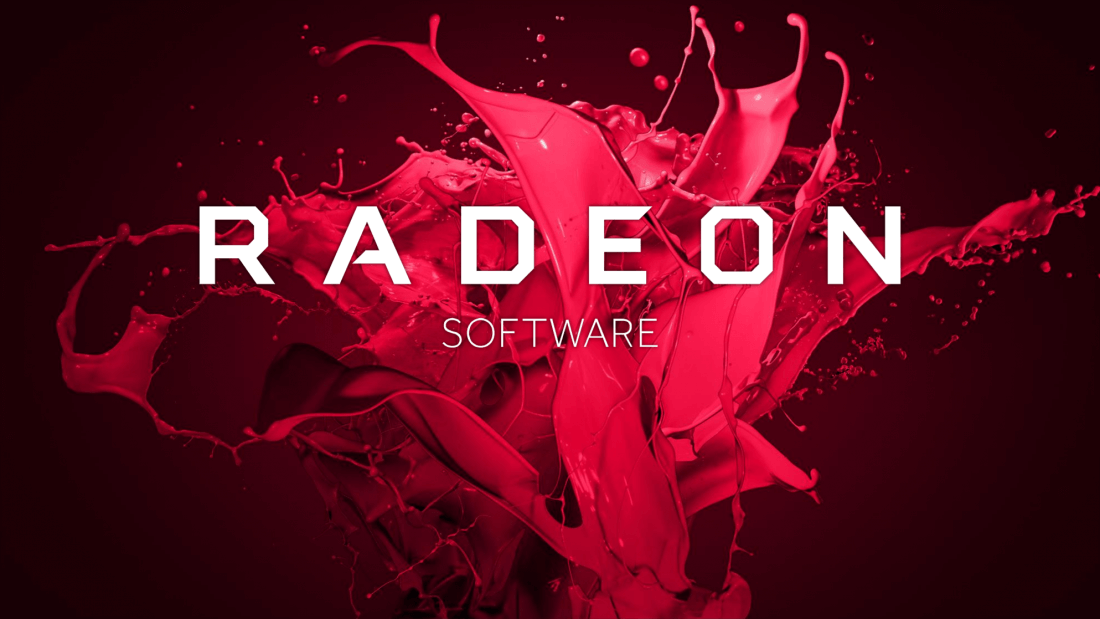
It’s been a busy week for AMD. Tuesday brought reports that Intel has signed a deal with the company to license its GPU tech, and today sees the release of a major update for its Radeon Crimson drivers: Crimson ReLive Edition (click to download).
The update, which AMD is calling its biggest software release ever, will improve gaming, stability, and VR experiences for owners of Radeon and Radeon Pro graphics cards, as well as introducing a number of new features.
When it comes to gaming, AMD shows how Crimson ReLive Edition can improve performance by between 4 and 8 percent using a GPU such as the RX 480. The chart below shows the difference when using the new update compared to June’s Crimson release.
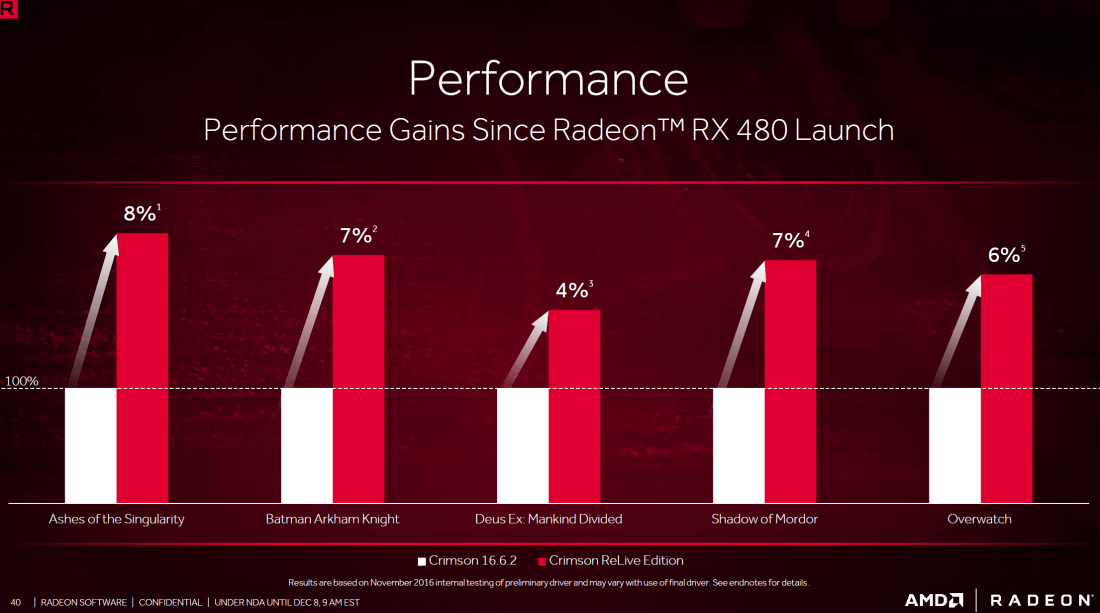
Crimson ReLive brings support for both HDR 10 and Dolby Vision which, for owners of compatible displays, brings gaming and video content to another level with increased brightness, contrast, and colors. Moreover, AMD notes how gaming is stepping into the “Deep Pixel Era,” with 8K resolutions and the wide number of FreeSync Monitors available.
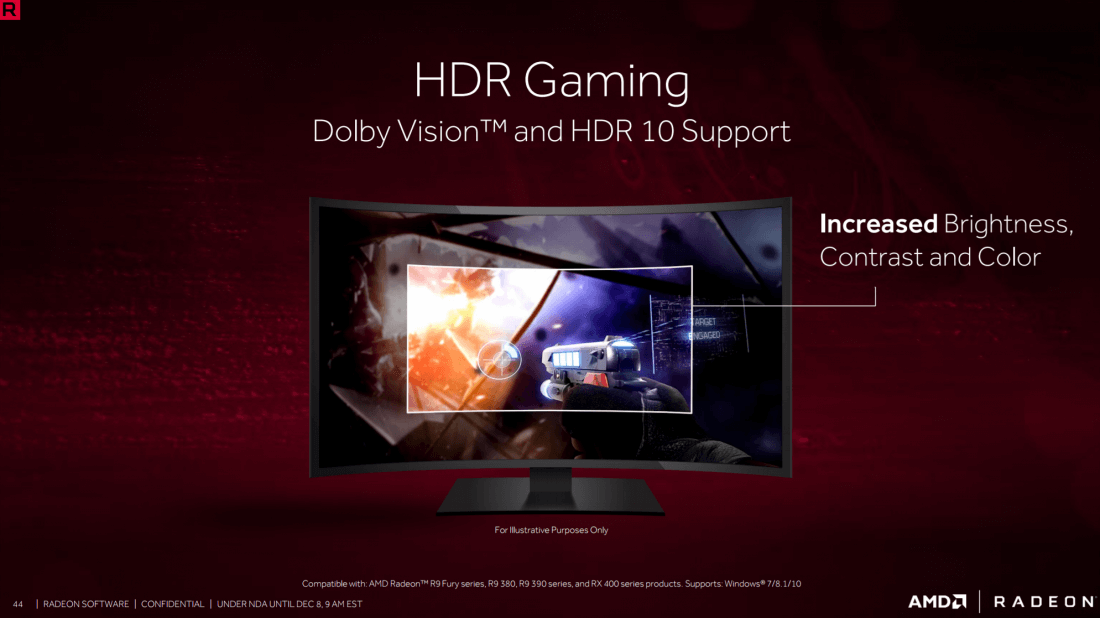
There’s also a handy new feature that automatically detects bad HDMI cables. Should one be detected, an algorithm will move through other resolutions and refresh rates until it can find a supported configuration, at which point it will notify the user.

Staying in the area of high resolutions, Crimson ReLive introduces new VP9 decode acceleration to enable fluid 4K 60Hz GPU-accelerated video streaming. There’s also FreeSync improvements with up to 24 percent lower click-to-respond time and a borderless fullscreen mode, along with support for DisplayPort HBR3 to allow single-link 4K/120 Hz, 5K/60 Hz and 8K/30 Hz rates.
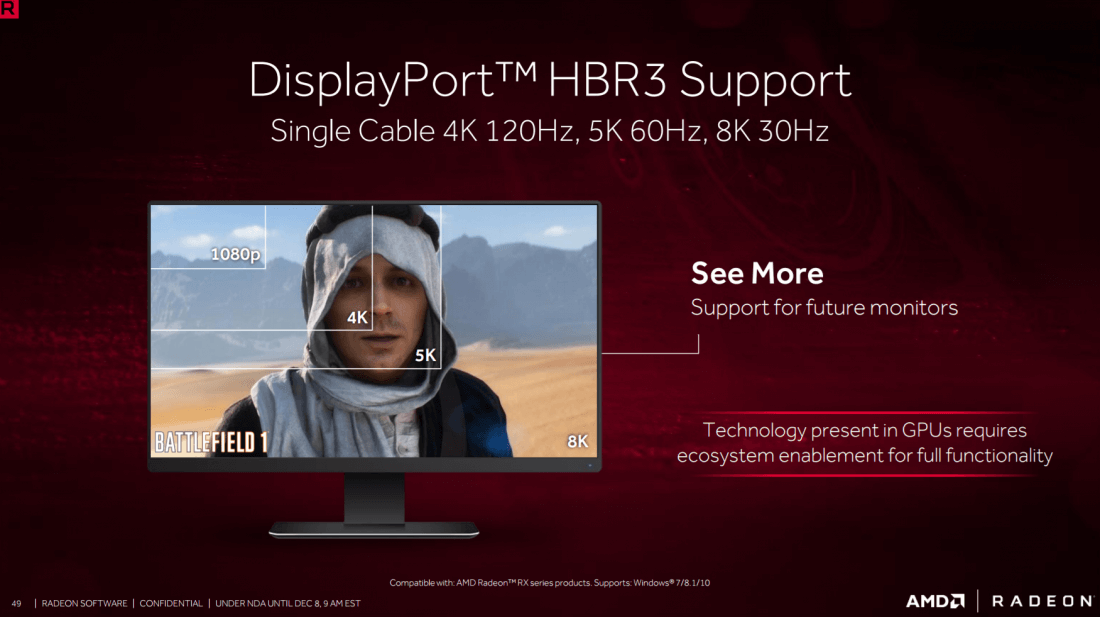
One especially interesting new feature is Radeon Chill, which AMD claims can reduce a GPU’s power consumption, heat production, temperatures, and cooling noise without compromising a game’s performance. It does this by analyzing what’s happening on a screen; if things are fairly static, Chill will scale down frame rates to save power, increasing them only when the action starts up again. It can also save power by stopping games from running at excessively high frame rates that may not offer any benefits to the gamer, and has the potential to decrease the amount of input-to-response lag.
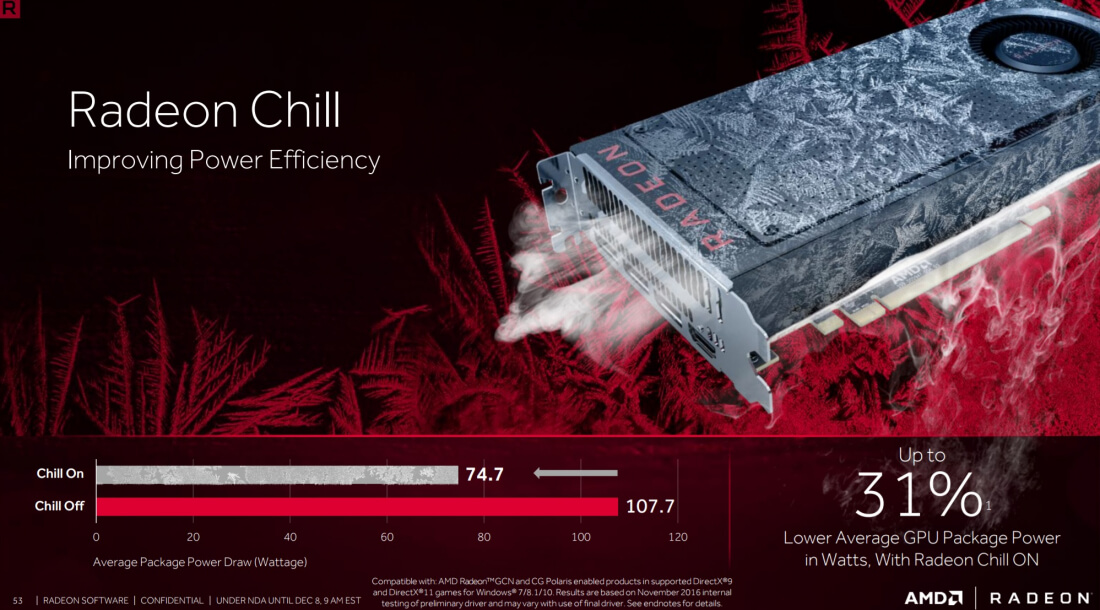
In what appears to be a response to Nvidia’s Share feature, Radeon ReLive Edition lets you capture, stream, and share your favorite gaming moments. The repositionable overlay toolbar allows instant replays from up to an hour earlier; 1-click record, stream, and screenshot functions; and, naturally, supports all the major streaming platforms.
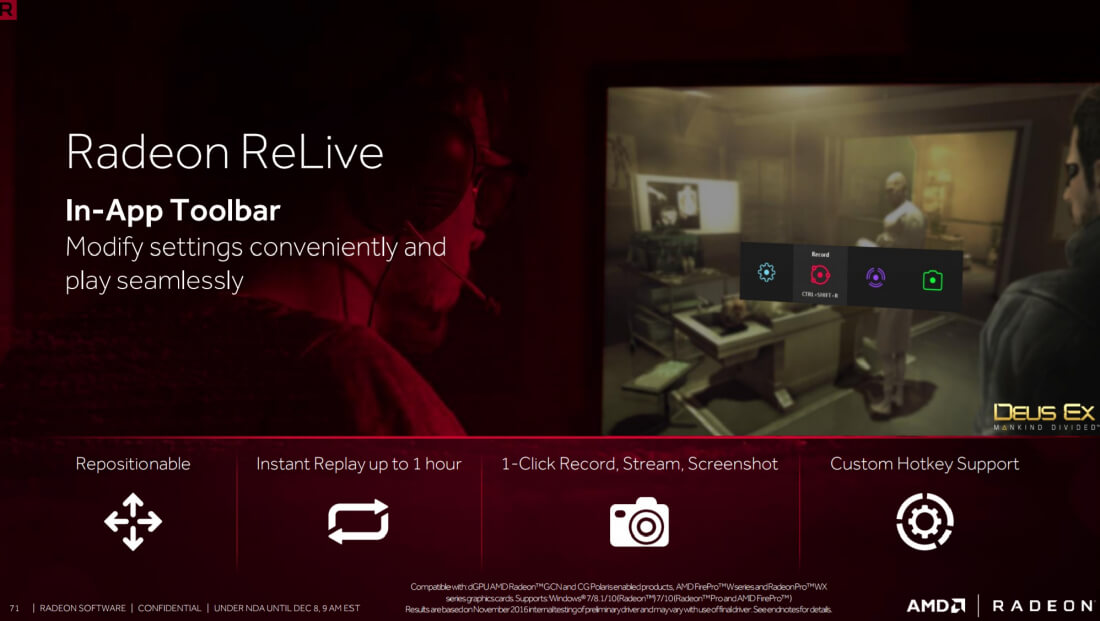
AMD is also improving Virtual Reality experiences with its LiquidVR technology, including optimization for multi-GPU setups and rendering, along with what it calls “truly immersive audio.”
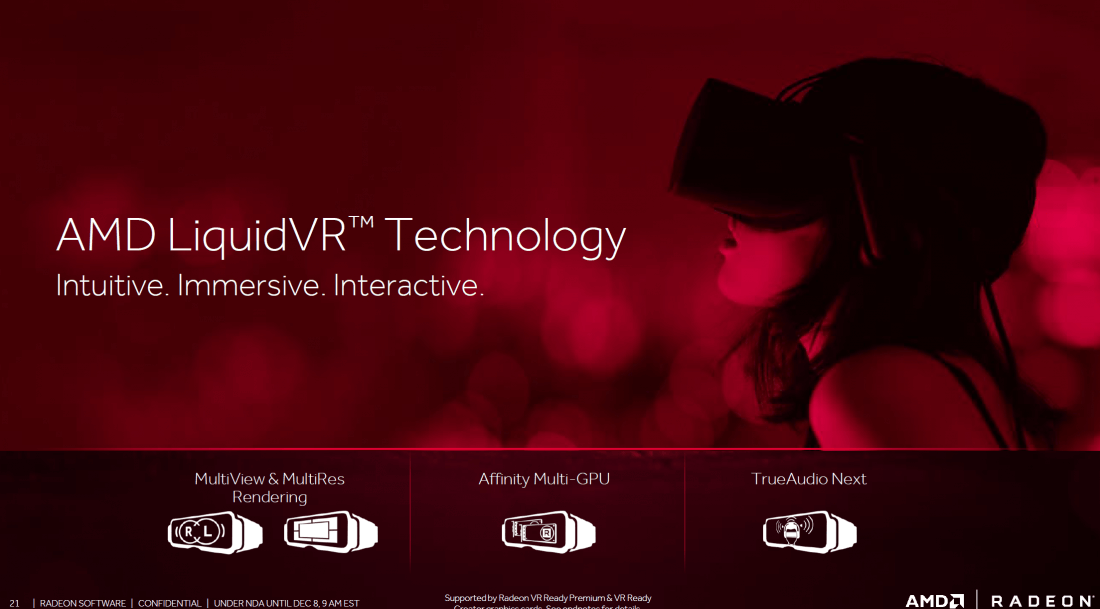
There’s good news for users of Radeon Pro GPUs. Crimson ReLive Edition brings YoY performance increases of up to 30 percent. AMD, meanwhile, says it is committed to quarterly updates for enterprise.
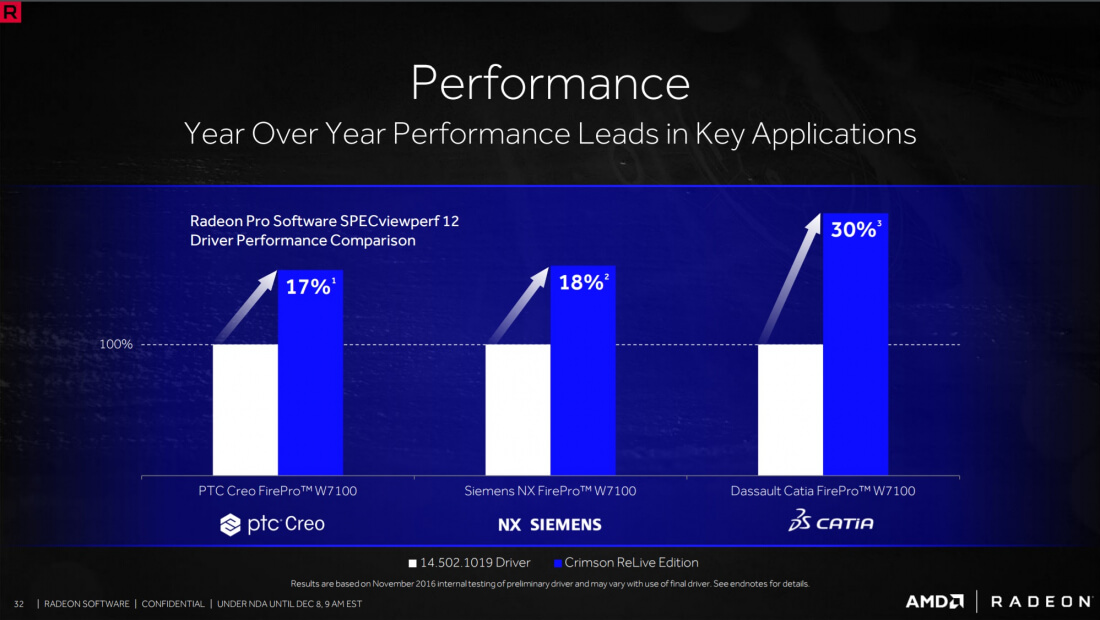
With this latest release, it looks as if AMD is going all-out in its battle against Nvidia. If you own an AMD GPU, make sure you download Crimson ReLive now to get the most out of your card.
https://www.techspot.com/news/67325-amd-crimson-relive-edition-driver-update-brings-host.html